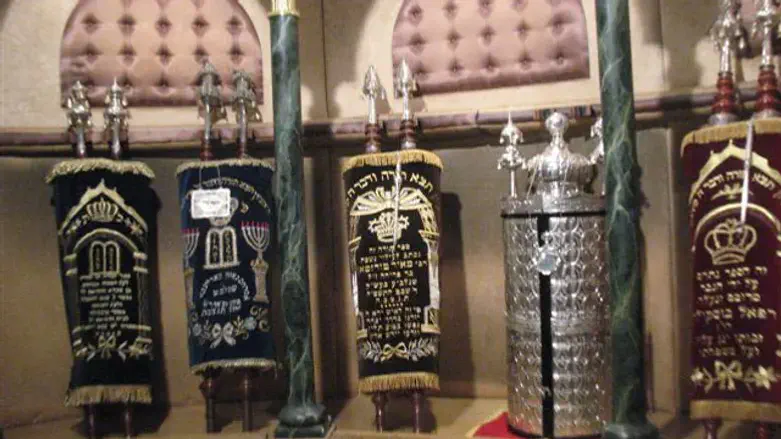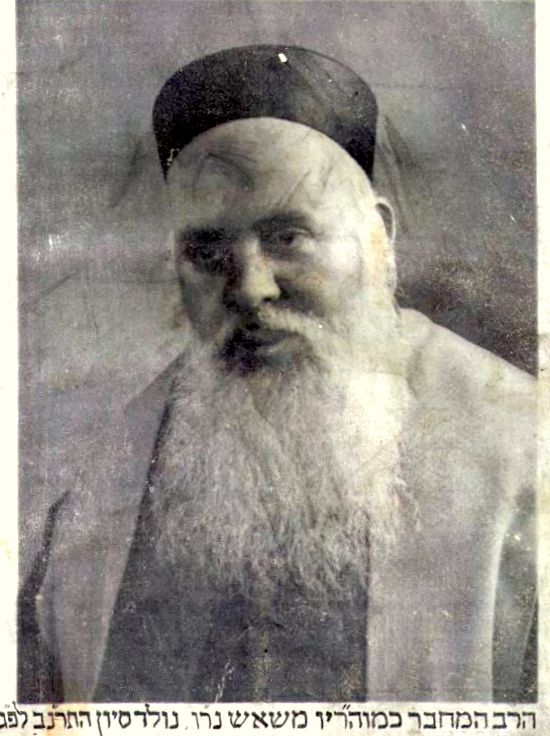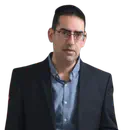
Avi Nachman - is a spokesperson for the World Federation of Moroccan Jewry.
Holocaust Remembrance Day is marked throughout Israel with ceremonies, memorial rallies and minutes of silence. An entire country stops to remember the six million who perished in the Holocaust - the communities that were wiped out, the families that remain wounded to this day.
On May 8, 1945, the news that had been awaited for years was heard throughout Europe - Nazi Germany had surrendered. World War II had come to an end, and hope began to beat again in the hearts of millions. But this historic moment was felt not only on the streets of London or Paris; it also reached the alleys of Fez, Casablanca, Tunis and Algiers - where Jewish communities waited eagerly to hear the end of the war. The end of a nightmare.
In those days, the means of communication in North Africa were limited. Radio was the preserve of very few, and at times even that was restricted by the colonial government, but the news flowed – from soldiers, messengers, or through semi-pirate broadcasts of stations like the BBC in French. Throughout North Africa, especially in the big cities where large Jewish communities lived, the news was received with euphoria. The synagogues were filled with prayers of thanksgiving.

Rabbi Yosef Mashash, one of the greatest Moroccan sages of the 20th century, served as rabbi of the city of Tlemcen, Algeria during World War II and later as chief rabbi of the city of Haifa. In his book Otzar HaMachtabim (Part III, Chapter 3, Chapter 15), the rabbi described the celebrations of the Allied victory over Nazi Germany that took place in Morocco as moving and grandiose events. He wrote of how Moroccan Jews, together with their Muslim neighbors, took to the streets in cities like Meknes, Fez, and Casablanca, singing, dancing, and waving flags to celebrate the defeat of the Nazis.
The Jews of the Maghreb felt a sense of liberation and relief after years of persecution and fear under Vichy rule and the Nazi threat. Rabbi Mashash also noted the active participation of the Jewish community in thanksgiving prayers in synagogues, in which they thanked God for salvation and victory, writing:
"And on Monday, Shabbat, 24 Iyar 5755, at two in the afternoon, trumpets sounded, announcing the end of the war with accursed Germany, for it had been completely conquered by the other countries. All day and all night, service, singing, and dancing did not cease from the streets of the city. And on Wednesday, Shabbat, at half past eight in the morning, the French Edom champions came to the synagogue of Rabbi Baruch of Toledo, which the crowd decorated with flowers, roses, and flags, and we held a celebration in a proper manner. Then a two-minute silence, honoring the memory of those killed in the war, as is the custom of the nations, then I asked for mercy for the dead, the war dead from the children of Israel and from my own family..."
In these descriptions, Rabbi Mashash reflects the unity and solidarity between the various communities in Morocco and the entire Jewish people in those days, and the hope and prayer for a better future after the war.
In light of the victory and celebrations in Morocco, Rabbi Mashash composed a special prayer in memory of those who fell in the war, Jews and Gentiles alike:
"Please, God, the Father of mercy, who dwells on high, Who knows all that is hidden, in Your great and mighty mercy, please have mercy on the loving and pleasant spirits and on the honest and innocent souls of the millions of Jews, men and women and children, who were killed and slaughtered, burned and drowned, suffocated and buried alive, and condemned to every kind of strange death, in every place touched by the cruel oppressor.
"King of kings, in Your great mercy, have mercy on them, and have pity and compassion on them, and bind their souls before You, the souls of the holy and pure House of Israel, who have given their souls for the sanctity of Your great Name, in the days of destruction ... and you will fill their souls with purity, fill their homes with plenty, ... and peace will accompany them, and on their places of rest there will be peace, ...and a cup of consolation will be poured into the hearts of the mourners and those who care and grieve with them.
"And you will avenge them and avenge all the blood of Your servants that was shed, as it is written in Your holy law by the man of God, the faithful one of Your house: 'For the blood of His servants will be avenged, and He will avenge his enemies and redeem His land. And Your servants the prophets have written, saying: And I have cleansed their blood... and the Lord dwells in Zion. And it is said, He will make known among the nations before our eyes the avenging of the blood of Your servants that was shed. And it is said, He who seeks blood, remembers them and does not forget them.
"The cry of the humble is heard: From now on, O God, grant peace in the land, grant peace in the kingdoms, and let us be quiet and content in Your service and fear of You, and let the earth be filled with the knowledge of the Lord. Amen."
Rabbi Mashash, who was aware of the contribution of the Allies, composed a prayer for God full of mercy for the Gentile Allied soldiers who fell in the war. And this is its wording:
"God, full of mercy, please! In Your great mercy, have mercy on all the souls of those who died in war from our Arab brothers, and the French, and the Russians, and the Americans, and the English, and all who helped them, give them a share in Your garden of paradise, and nourish them with Your goodness. May they receive a good and beautiful reward for their great kindness that they have shown all the inhabitants of the world, and in particular with our people, the people of Israel, with the help of God, blessed be He, in their tireless work, until their blood was shed on the ground ijn order to banish an evil beast from the earth, Hitler and all who follow him, the wicked will not rise in judgment, for they will be ashes under the feet of the souls of the armies of the mentioned kingdoms. Amen."
Rabbi Mashash describes entire celebrations of praise and thanksgiving for the victory in the war. Along with a special greeting to the King of Morocco, and a greeting to the President of the United States, and lots of cheering and processions in the streets of the city.
The story of Moroccan Jews on Victory Day over Nazi Germany, as described by Rabbi Yosef Mashach, zt"l, is a testament to the way in which world history unfolded in the alleys of Jewish neighborhoods in North Africa - leaving a deep imprint of joy, prayer, hope and vision. We must pass on this legacy - not only as another chapter in the memory of the Holocaust, but as a foundation for a broader Jewish identity.
Holocaust and Heroism Remembrance Day has become a major national event in Israel, but still, too often, the moving stories of Jewish communities outside of Europe are absent from it - communities that were not in the death camps, but lived in the threatening shadow of Nazism, under Vichy rule, with the tangible threat of German invasion and a continuing sense of helplessness. These communities – including Moroccan Jewry – knew how to survive, cling to faith, and express the feeling of salvation in song and prayer, with a great love for life and respect for those who fought for them.
Precisely now, when anti-Semitism is rising again around the world, and when

